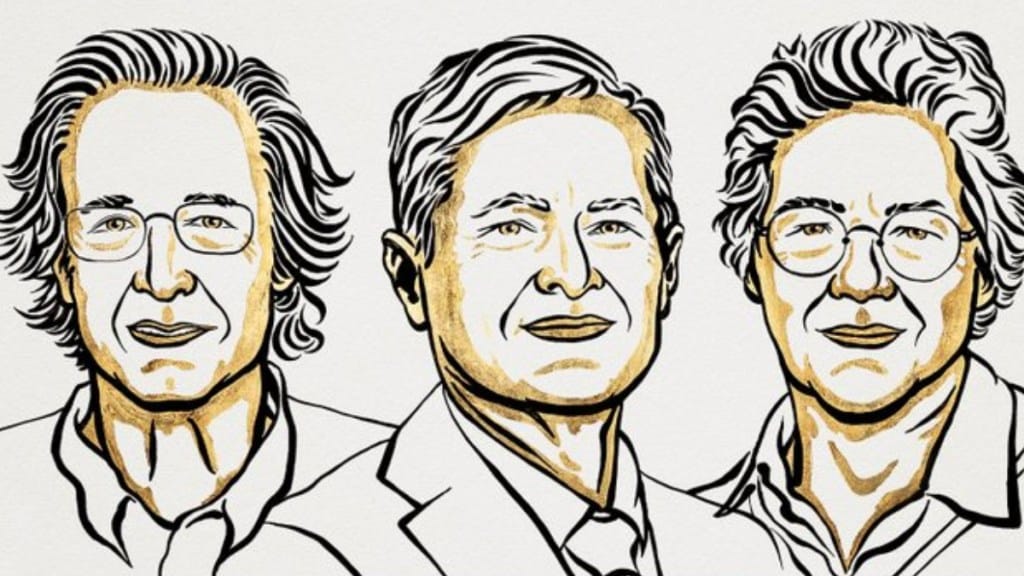Pierre Agostini, Nobel Prize 2023 Winner: Three prominent scientists – Ferenc Krausz, Pierre Agostini and Anne L’Huillier – have been awarded the 2023 Nobel Prize in the field of Physics. According to the official statement, the trio have won the Nobel for their work ‘for experimental methods that generate attosecond pulses of light for the study of electron dynamics in matter.’
The Physics Nobel comes a day after the Royal Swedish Academy of Science awarded the first Nobel of the season to the breakthrough discovery that helped in formulation of coronavirus vaccine. Three scientists had shared the last year’s Nobel as well. In 2022, John F Clauser, Anton Zeilinger and Alain Aspect were awarded the Nobel prize for their stellar work in quantum information science.
The Royal Swedish Academy of Sciences awarded the prize which was raised this year to 11 million Swedish crowns which is about $1 million.
Earlier this week, Hungarian scientist Katalin Kariko and her U.S. colleague Drew Weissman had won the medicine prize for making mRNA molecule discoveries which paved the way for COVID-19 vaccines. After this, the second Nobel that has been awarded is in Physics.
Established in the testament of Alfred Nobel, the inventor of dynamite and a prominent businessman, the accolades recognizing outstanding accomplishments in the fields of science, literature, and peace have been granted since 1901, albeit with occasional interruptions. These awards are widely regarded as perhaps the most prestigious honors for scientists globally.
While the Nobel Peace Prize often garners significant attention, the Nobel Prize in Physics has frequently taken the spotlight, honoring luminaries like Albert Einstein and recognizing breakthroughs in science that have fundamentally reshaped our understanding of the world.
In the previous year, Alain Aspect, John Clauser, and Anton Zeilinger earned this esteemed accolade for their pioneering work in the realm of quantum entanglement, a phenomenon where two particles remain connected regardless of the physical distance separating them. This concept even perplexed Einstein himself, who famously referred to it as “spooky action at a distance.”
Traditionally unveiled on consecutive weekdays in early October, the announcement of the Nobel Prize in Physics precedes announcements in the fields of chemistry, literature, peace, and economics, the latter being a more recent addition to the original Nobel Prize categories.

